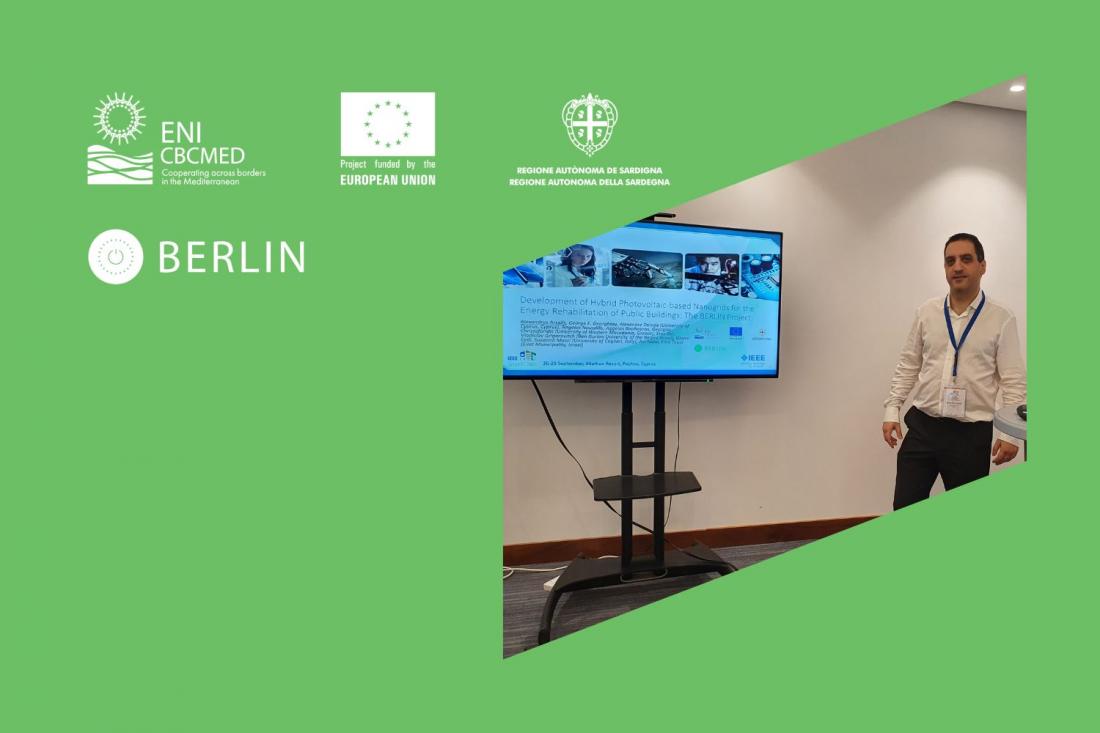BERLIN in the epicenter of the energy rehabilitation of public buildings

The high energy consumption in the building sector, that is primarily fossil-fuel based, and the limited availability of the national electric grid in some remote or rural areas of the Mediterranean region call for new solutions that ensure stability and power quality of energy provision and higher penetration of renewable energy sources. BERLIN aims to develop a hybrid photovoltaic-based nanogrids for the energy rehabilitation of public buildings.
In this framework, BERLIN project was presented at the IEEE International Smart Cities Conference by Dr Alexandros Arsalis, Special Scientist at FOSS Research Centre for Sustainable Energy of the University of Cyprus. The presentation described how BERLIN project can help materialize key energy targets, such as the increase of Renewable Energy Share, maximization of self-sufficiency, and the coupling of Photovoltaic (PV) modules with Energy Storage Systems (ESS) and Demand Side Management (DSM). The presented paper described the components, configurations, and operating principles of the hybrid PV-ESS-DSM nanogrid pilot systems that are currently under development through six pilots in the four participating countries (Cyprus, Greece, Israel, and Italy).
The IEEE International Smart Cities Conference is the flagship IEEE Smart Cities event which brings together practitioners, city policymakers and administrators, infrastructure operators, industry representatives and researchers to present technologies and applications, share their experiences and views with current and future Smart Cities applications. The conference included keynote talks, workshops and tutorials given by experts on state-of-the-art topics, and special sessions on emerging topics with the aim of complementing the regular program. The paper was presented during the technical session of the Smart Infrastructure and Integrated Energy Systems (SIIES).









